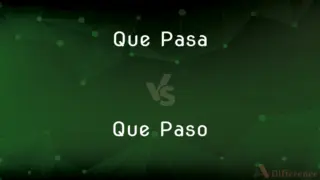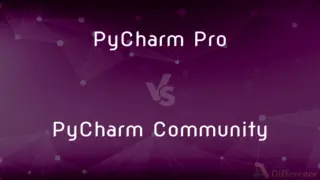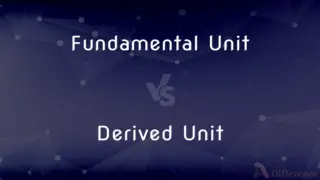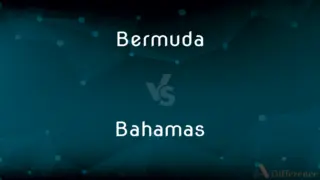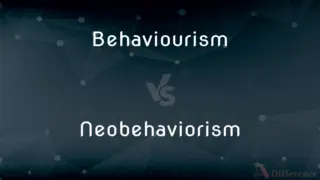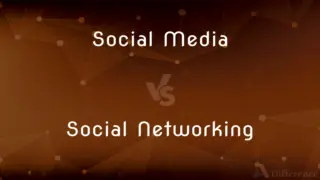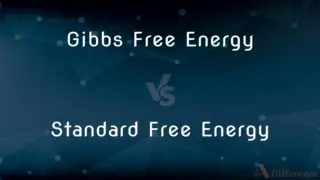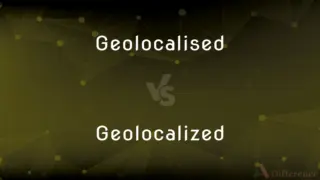Public School vs. Private School — What's the Difference?
By Tayyaba Rehman — Published on September 22, 2023
Public School is funded by taxpayers and government-run, while Private School operates independently, often funded by tuition fees and donations.

Difference Between Public School and Private School
Table of Contents
ADVERTISEMENT
Key Differences
Public School is largely funded through tax revenue and administered by government entities. Conversely, Private School relies primarily on tuition fees, donations, and sometimes endowments for funding.
Generally, Public School must adhere to educational standards set by the government. Private School, being independent, often creates its own curriculum and standards, which may or may not align with those of public institutions.
Public School is accessible to all students within its district and cannot deny admission based on selective criteria. Private School, on the other hand, can be selective, often requiring admissions tests or interviews.
Typically, Public School does not charge tuition, as it is funded by tax dollars. In contrast, Private School usually charges tuition, which can vary significantly based on the institution's reputation and offerings.
While Public School often has a larger student body, representing a broader demographic, Private School can have a more homogeneous student population, influenced by its selectivity and cost.
ADVERTISEMENT
Comparison Chart
Funding Source
Tax revenue
Tuition fees, donations, endowments
Governance
Government-administered
Independently operated
Tuition Fees
Generally none
Usually charged
Admission Criteria
Open to all in the district
Can be selective
Curriculum Standards
Adhere to government standards
Can create their own standards
Compare with Definitions
Public School
Open to all students in the district.
Every child in the neighborhood attends the same Public School.
Private School
An independently funded educational institution.
The Private School downtown has a renowned arts program.
Public School
An educational institution funded by taxpayers.
Our district has one of the best Public Schools in the state.
Private School
Operates autonomously from government control.
This Private School has a unique teaching method not found in public institutions.
Public School
Governed by state and local regulations.
This Public School follows the state-mandated curriculum closely.
Private School
Typically smaller with individualized attention.
Students at that Private School benefit from small class sizes.
Public School
Typically larger with diverse demographics.
The Public School here reflects the diversity of the community.
Private School
May have selective admissions criteria.
The Private School on the hill requires entrance exams.
Public School
Often does not charge tuition.
Attending a Public School can be cost-effective for many families.
Private School
Often charges tuition and may offer scholarships.
Though the Private School is expensive, they provide financial aid.
Public School
Attributive form of public school
Public-school student
Public School
Alternative form of public school
Common Curiosities
Are Private Schools always religious?
No, while some Private Schools are religious, many are secular.
Do Public Schools offer specialized programs?
Yes, many Public Schools offer specialized programs, but offerings vary by district.
Can Public Schools deny admission?
Public Schools must admit all students in their district but may have specialized or magnet programs with criteria.
Are Private Schools subject to state testing?
It varies by state, but many Private Schools opt out of state testing, choosing their own assessments instead.
Is the quality of education better in Private Schools?
Quality varies among both Private and Public Schools. Factors such as resources, teachers, and curriculum impact quality.
How are Public Schools held accountable?
Public Schools are accountable to the state and local school boards and must meet specified educational standards.
Can Private Schools offer scholarships?
Yes, many Private Schools offer scholarships based on merit, need, or both.
Can anyone start a Private School?
While regulations vary, in general, individuals or groups can start Private Schools but must meet certain requirements.
Why might parents choose Public School over Private?
Reasons might include cost, proximity, specialized programs, or believing in the benefits of a diverse environment.
Is transportation provided for both school types?
Public Schools often provide transportation, but it's less common for Private Schools.
Share Your Discovery

Previous Comparison
Employee vs. Contractor
Next Comparison
Come vs. GoAuthor Spotlight
Written by
Tayyaba RehmanTayyaba Rehman is a distinguished writer, currently serving as a primary contributor to askdifference.com. As a researcher in semantics and etymology, Tayyaba's passion for the complexity of languages and their distinctions has found a perfect home on the platform. Tayyaba delves into the intricacies of language, distinguishing between commonly confused words and phrases, thereby providing clarity for readers worldwide.




















